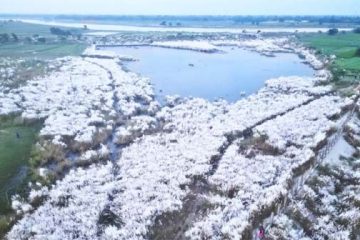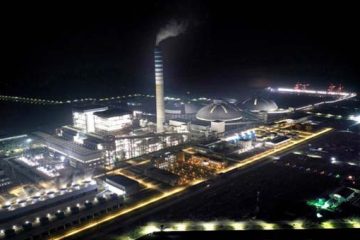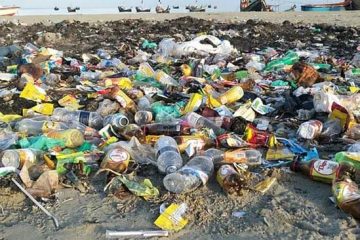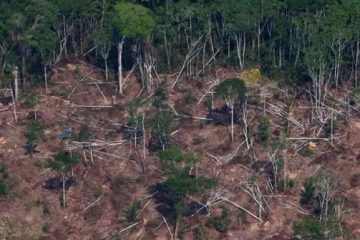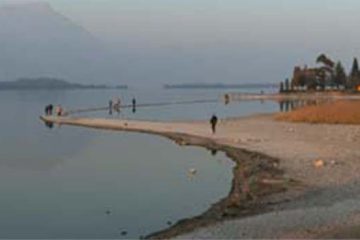Natural Resource Governance
A prerequisite for sustainable development
Rukshana Sultana
 The constitution of Bangladesh — article 143– illustrates that all natural resources on land and underground minerals and other things of value underlying the ocean within the territorial waters, or the ocean over the continental shelf of Bangladesh, are the properties of Bangladesh. In general, natural resources include oil and gas, minerals and metals, forests, fish, land and water. In Bangladesh, some 83% of the total population explicitly depends on natural resources. Therefore, to ensure sustainable use of these resources is important to establish natural resource governance practice.
The constitution of Bangladesh — article 143– illustrates that all natural resources on land and underground minerals and other things of value underlying the ocean within the territorial waters, or the ocean over the continental shelf of Bangladesh, are the properties of Bangladesh. In general, natural resources include oil and gas, minerals and metals, forests, fish, land and water. In Bangladesh, some 83% of the total population explicitly depends on natural resources. Therefore, to ensure sustainable use of these resources is important to establish natural resource governance practice.
Principles of governance
To establish natural resource governance(NRG), it is necessary to incorporates of governance in the constitution to ensure their practical application. Among these principles, accountability, transparency, the rule of law and participation are considered as pillars of governance. The principles listed below are not necessarily applicable for every organization practicing governance. It varies on the socio-economic condition of the country and the parallel support provided by the constitution of the organization.
* Accountability is one of the prerequisites of governance. It suggests that elected public officials are entitled to be responsive to the entity from which they derive authority and are answerable to for their actions, activities and decisions. With accountability comes liability which is considered as a second form of accountability.
* Transparency and accountability are interrelated and mutually reinforced. Without transparency it would be difficult to call public sector entities to account. This principle is built on the free flow of information to the public to render them understandable and monitorable.
* Government should offer all stakeholders say in the decision making process and implementation facilitating their participation, so that they can exercise influence over public policy decisions and share control of resources and institutions that affect their lives. This broad participation, built on freedom of association and speech, can occur at the grassroots, local government and regional and national levels.
* Rule of law or predictability is a prerequisite to facilitate governance. It will help stakeholders to know the rules in advance thus the state agencies or subsidiaries or private enterprises and individuals will be bound by and answerable to the legal system.
* Access to information and justice
* Respect for human rights
* Equity
* Strategic vision
* Commitment to the public good
* Social capital which the World Bank defines in reference to the institutions, relationships and norms that shape the quality and quantity of a society’s social interactions. This is a very strong principle of governance that not necessarily refers to the sum of the institutions that underpin society rather it works as glue that holds them together.
* Political stability and absence of violence
* Regulatory quality
* Promoting an enabling legal and judicial framework
Actors involved
Jon Pierre definition of governance refers to sustaining coordination and coherence among a wide variety of actors with different purposes and objectives. These actors may include politicians and institutions, interest groups, civil society, non-governmental and transnational organizations.
In Bangladesh, UN bodies, local NGOs, INGOs, donor organizations, civil society, CBOs are working in coherence with the local administration.
Challenges and possible solutions
Still unstable economically and politically, Bangladesh needs to shed light on establishing natural resource governance. However, the writer identifies a number of problems to be taken care of. These are:
* Improper understanding of NRG: The writer understood that there is a knowledge gap in understanding natural resource governance. This is confusing especially for the grassroots, level resource users. Since the terminologies are still fresh and leave a lot of room to experiment with redefining and practicing it is necessary to be prudent and maintain clarity while applying the terms to make others understand.
One possible solution to this could be enlightening the government officials, policy makers, managers, civil society and the local authorities through interactive training and workshops.
* Dependency on government: Large-scale dependency on government can underpin implementation of NRG in practice in Bangladesh. It is also a deviation from the main theme of governance.
This dependency can be reduced by making the civil society more active. Also strengthening the local authority can play a pivotal role in power decentralization. It is also necessary to strengthen the CBOs by providing sufficient training.
* No/minimum integration within the institutions: In Bangladesh, most of the developmental activities are hindered by lack of integration within the government agencies. This could cause the whole society suffer in natural resource governance practice.
Initiatives can be taken to minimize this institutional gap. Appropriate measures include prudent collaboration within the govt. institutions, civil society, local NGOs and CBOs.
* Lack of constitutional recognition: The term ‘natural resource governance’ is yet to be recognized by the constitution of Bangladesh. It requires majority support by the parliament members.
Since it is a very complex and sensitive issue government can publish gazettes in relation to natural resource governance.
* Ineffective civil society: One of the prerequisites of governance is the active presence of civil society. Here, in most cases, civil society voice is absent.
Civil society reform can help capacity-building within the civil services. Civil society can act as a pressure group.
* Lack of appropriate policy: Since NRG lacks constitutional recognition, the local authority lacks guidance and suffers in taking preventive measures.
Appropriate policy reform and intervention is a current need to establish NRG.
* Ineffective and non-functional local govt. authority: It is one of the prime threats to establishment of natural resource governance.
Empowerment of local authorities can help in this regard.
* Political instability: Unstable political situation can NRG practice vulnerable.
To handle such situation government needs to ensure the presence of every political party in policy reform. A strong civil society movement can also help minimise political influence.
* CBOs lack voice: Most of the CBOs are formed by a flock of poor people who are the resource users. Within them illiteracy rate is very high so they lack proper knowledge and remain unaware of their strength.
These people should be trained to create awareness within them.
* Noncooperative law and enforcement squad: The law and enforcement squad is corrupted in most cases and does not offer any service to the poor people.
To make the squad effective government needs to reform the policy and remove political pressure on them.
* Dependency on natural resource usage: As mentioned earlier some 83% of total population largely depends on natural resources. The reasons of this reliance need to be addressed.
They can be trained to have alternative livelihoods.
* Conflict: Since a large population depends of natural resources for their livelihood conflict with the protectors is high in some areas.
This could be minimised by creating awareness.
* Corruption: One of the key problems of NRG implementation is corruption at the every layer of government.
Policy intervention and decentralisation can help in reduction of corruption.
* Poverty: Poverty is one the major issues in NRG practice. Greed intrigued by poverty causes excessive natural resource extraction pushing the vulnerability limit.
Poverty reduction should be a priority goal.
* Lack of resourceful personnel: This is a major threat to establishment of NRG practice in Bangladesh.
Effective training and education can help fill this gap.
The writer is working as a herpetologist for the Forest Department. E-mail: to.ranee@yahoo.com)
Article originally published on The Daily Star

